‘The danger in telling a single Partition story is that it completely erases the individual’
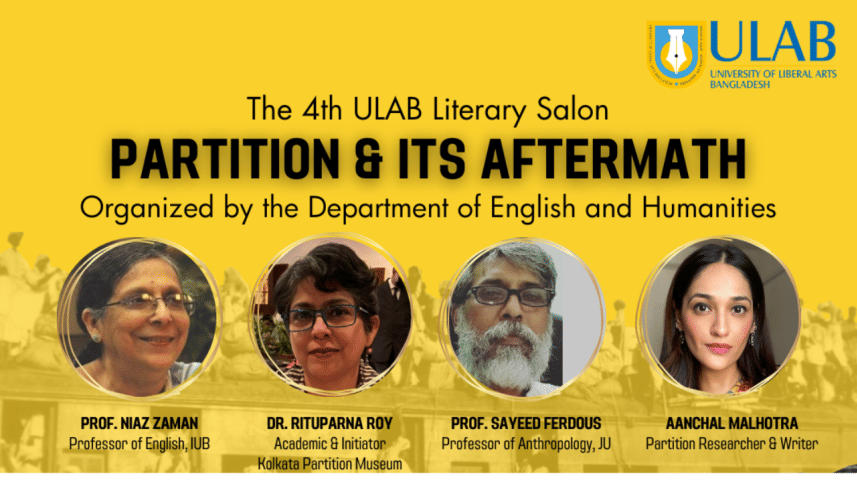
On the eve of Partition, August 13, 2022, The ULAB Literary Salon organised by the Department of English and Humanities engaged in a lively, immensely informative discussion on the history and legacy of the Partition of India in 1947.
Moderated by writer and journalist Sudeep Chakravarti, Visiting Faculty at ULAB, and by Sarah Anjum Bari, Adjunct Lecturer at ULAB and Editor of Daily Star Books, the discussion included among its speakers Niaz Zaman, editor, translator, and Professor of English at Independent University, Bangladesh (IUB); Dr. Rituparna Roy, academic and initiator of Kolkata Partition Museum; Sayeed Ferdous, Professor of Anthropology at Jahangirnagar University and most recently the author of Partition as Border-Making East Bengal, East Pakistan and Bangladesh (Routledge, 2022); and Aanchal Malhotra, Partition researcher and author of In the Language of Remembering: The Inheritance of Partition (HarperCollins, 2022).
Sarah Anjum Bari: When we talk about the history of Partition, a lot of focus is given on West Bengal, India and West Pakistan and not so much on East Bengal. Could you tell us about your work in that area?
Sayeed Ferdous: There's a huge debate in academia about why there is this silence about [the] Partition of 1947 in East Bengal. An easy answer is 1971 has taken up all the talking points of history in Bangladesh. But also in the Partition literature, East Bengal has been under-represented. Many years ago, Willem van Schendel worked on this issue of Partition and border making in the region, and talked about how Partition was focused to the West, the Punjab border, but the focus was on Calcutta—the refugees arrived in Calcutta. However, the Partition had an effect on Assam and Tripura as well, among others.
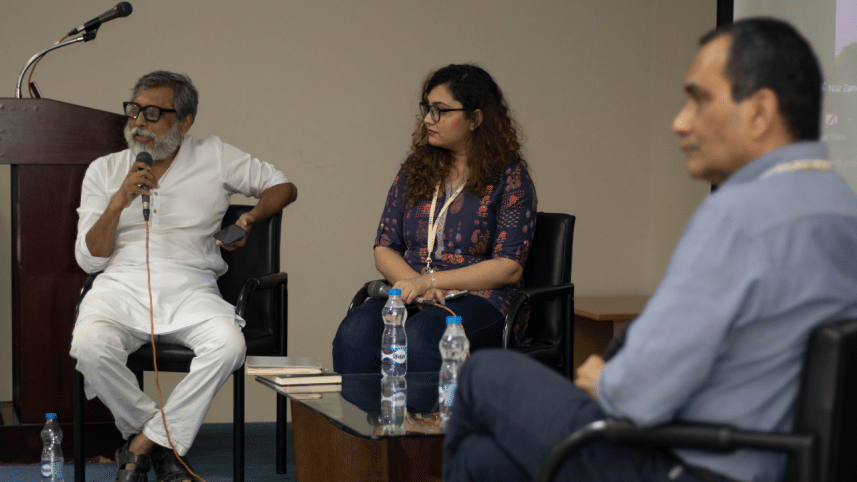
So, my emphasis was on the crucial fact that the non-Muslims from East Bengal had to leave before and after the Partition, in the decades that followed. Bengali Muslims, the predominant social category in East Bengal, had a historical responsibility behind this exodus. There were also non-Muslims in East Bengal who had to stay back—many didn't want to leave their ancestral place. Many found that they don't have the material support to migrate with their family. Partition literature hardly talks about them.
East Bengal was also a place where people secretly came to and settled from different parts of India. If we consider the aftermath, the non-Bengali Partition migrants who arrived immediately after the Partition, their trajectories show they had to give up everything. This was in '47, but by 1971, this section of non-Bengali Muslims became the villains of history in this land. Until very recently, we did not hear much about them.
Sudeep Chakravarti: Professor Niaz Zaman, you yourself have done extensive studies on this—you have curated anthologies on this issue and studied the novels that have been written in the three countries. Would you share some of your thoughts with us?
Niaz Zaman: The reason that the partition of 1947 was elided in East Pakistan is very complicated. One of the reasons that I mention in my book, A Divided Legacy: The Partition in Selected Novels of India, Pakistan and Bangladesh is that, in what was then East Pakistan, '47 was overtaken almost immediately by the language question, and the question of identity. We are Pakistanis, but we are also Bengalis. Now, how different are we from Hindu Bengalis? How similar or different are we from the Pakistanis? This language question started even before Partition took place. And it culminated, we can say, in 1952. With the language movement all questions of partition of '47 were forgotten.
In '47, '48, '49, it took a long time for news to percolate to the villagers. So we are talking really about the urban elite here, who are concerned and who are writing about things.
You think about Khushwant Singh's Train to Pakistan (1956), Bapsi Sidhwa's Cracking India (1988) or Ice Candy Man (1988). You think about Manto: the vignettes that he writes about in short short paragraphs, conveying the horror of Partition. Whereas, in East Pakistan, it was sort of forgotten, because of the language question, the identity question and the relationship of the East Bengali to the West Pakistani.
I think Bengalis or Bangladeshis were embarrassed about the role that they played in the Partition. The Muslim League was not formed in Lahore, or Karachi, or in that little lonely place Rawalpindi. It was formed in Dhaka. We have forgotten the Muslim League.. We say they never existed. But the sad thing is, we cannot forget history.
Sudeep Chakravarti: Aanchal, you seem to have travelled almost a light year, from 1947 into remembering Partition in a very tactile way, through objects, through memories, and made a very fascinating anthropological study. Could you share some of that with us?
Aanchal Malhotra: Thanks, Sudeep. The first thing I want to say is that it's very difficult to homogenise the experiences of Partition, whether they come from Punjab or Bengal, and we must not ever fall in that danger of thinking there is one kind of story.
The danger in telling a Partition story only through those two lenses is that it completely erases the individual, and their sacrifices, their journeys, their voices. That is really what interested me in Partition. When I started, which [was] nearly a decade ago, it was because what I had learnt about Partition in school was a conversation of numbers and statistics. For someone who comes from four grandparents who migrated at the time of Partition, it was quite a shocking thing for me. The violence that they had witnessed and fled from seemed to come out far easier with the aid of an object. This is generally how subsequent generations are introduced to Partition, through these vignettes of nostalgia. We are not offered that entire landscape of horror. And it seems that where there is space in language for nostalgia, other things remain mostly absent or disassociated.
As an oral historian of Partition who comes from a Punjabi background, one of the main questions I am asked is, why there is a lacuna of voices from the Bengali Partition. And I actually don't think there is. The work is being done at the moment. It may exist in academia on this side of the border or that side and may not make its way to traditional publishing, or even may not be sensationalised as the Punjab partition has been because of the very intense violence in a very short period of time, which existed in a very fortified border.
There are political differences, ethnographic differences, linguistic differences from the east and the west. But there is a lot of work being done on this side. It gives you a lot of hope that we can come up with an organic archive of these multiple Partitions that have disturbed the land over many years and created these three identities, these three countries that don't have a shared understanding of a history they do share. I think Rituparna can add a lot more.
Rituparna Roy: In school I was a great lover of history. Much later, I realised that what history books in schools gave me were actually facts about the freedom struggle that led to independence. But it is literature that introduced me to Partition.
It was in a museum visit that the first idea for a Partition museum came to me. The year was 2007, I had just left my tenured service to join my husband in the Netherlands. We were in Berlin for a very short trip. We took a historical walk and one of the pauses of that walk was Peter Eisenman's open Holocaust Memorial. That shook me in a way that nothing ever did before. For the first time it struck me that the Holocaust and Partition more or less happened at the same time. You have so many Holocaust memorials, so why is it that we do not have any public memorialisation of Partition?
We have two primary aims. The first is to memorialise the specificity of the Bengal partition. We are also trying to change the partition discourse a bit. Another important emphasis is to remember the cultural continuity between the two Bengals.
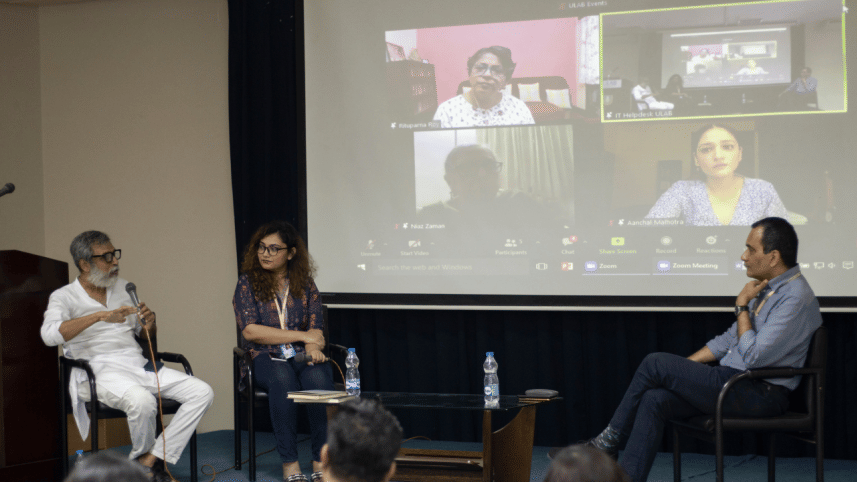
Sudeep Chakravarti: Professor Sayeed, there is an aspect in Assam, in India, where on account of Partition, they had their own language movement. When East Bengal had Ekushey, they had Unishey, the 19th of May, 1961. Could you talk to us about some of these unintended effects of partition?
Sayeed Ferdous: Partition is all about unintended consequences. The countries were declared independent on August 14 and 15. The border was made public on 17th of August. So consider the misery along the border line. People were thinking that they may end up in Pakistan, but all of a sudden they discovered themselves as part of India. These things happened on both sides of the border. There was this huge confusion because people had been asked to cast their vote like a referendum, in which part the locality wanted to be in. I conducted my fieldwork in the district of Dinajpur, that is just next to Southern Dinajpur, in India. In the referendum, they had voted for Pakistan with a huge majority and they were expecting that Uttar Dinajpur would be part of Pakistan. All of a sudden, after the border had been declared, they came to know that it was bifurcating. So, the township of that locality actually belonged to India, and the rural area became part of East Pakistan. People had divided livelihoods, lives, families, etc. And then people had this huge mistrust among the community. If you go there today, you will find these absurd, unreal, make believe stories that there's this conspiracy from the Hindus, and some local Muslim leaders are part of that in believing that India has taken away this part of our land.
I would take this opportunity to add two more points that have been disregarded. Number one, Partition studies is all about monotonization and absolutization of loss. But at the same time, for East Bengal, Partition was a moment of hope and joy, a moment of assertion of new identity, emergence of new Muslim identity. People like Farrukh Ahmad, Akram Khan, and their fascinating literary works, crafting a new identity, started from 1937.
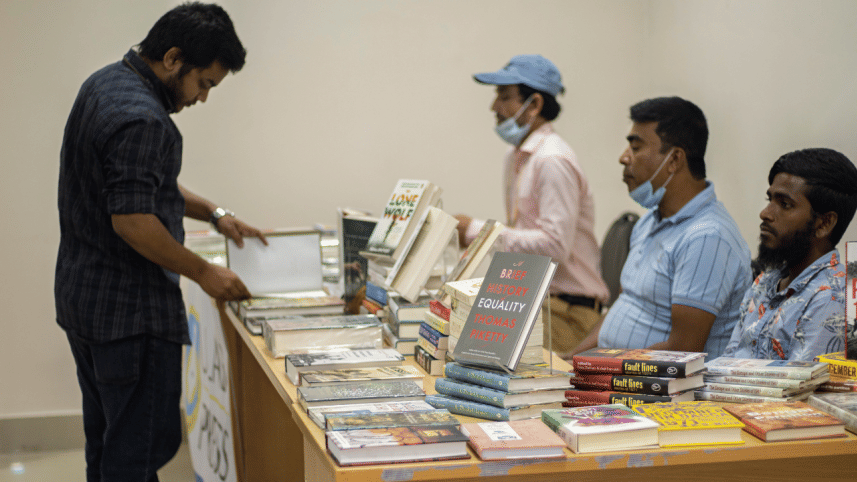
The other part is, the nationalisation of nostalgia. When two states had been formed, and people were shaped within the status of nationalist domains, people's identity took a new turn. One of the major results of Partition is that India appeared to be the superpowers in this region. And that had consequences with India's relation with Bangladesh, with Pakistan. Ananya Jahanara Kabir, in her book, used the term 'indocentric' approach. Partition, so far, had been treated in a very indocentric way. Anything outside that was often disregarded. These are the areas that we should really take care of.
Sarah Anjum Bari: One of the main ways that the younger generations get to learn about history, as Dr. Roy said, is through literary text. How is Partition being taught in our classrooms in Bangladesh?
Niaz Zaman: Let me go back a few years. A very personal confession: the reason I took up the study of Partition novels is that the Asiatic society of Bangladesh had called for proposals for research. They were going to give a handsome amount of stipend. I took the opportunity to apply. I have to explain here that Aanchal, you are not the only Punjabi here. There are ethnicities, and there are nationalities. I am a Bangladeshi citizen, but I am Punjabi, and I am Chinese, and I am Irani. And this was true of many people in India when we lived together.
My husband was a Bengali from Kolkata, a refugee. And, he was a very very strong Bengali. When my first son was born, this was before 1971, he said that you have to talk to the child in Bangla. I said, I don't know Bangla. How can I talk to my child in a language which is not mine, which I had not heard from my mother? I struggled. In '71, I became very angry. I was a Punjabi, married to a Bengali and to whom did my loyalties belong? Did my loyalties belong to the Pakistani soldiers who were chasing us, and yes, I was chased twice in a single day. I hardly knew any words of Punjabi, unfortunately. I couldn't have conversed with them.
To the Bengalis who know me, I am not a Bengali. But when I go to Pakistan, I am a Bengali. In '71 I was very angry. And I consciously gave up all my connections to Urdu. When the Asatic society asked for proposals, I said, the language has not done me any harm, I am not fighting against the language. I would like to see how people who write in English, people who write in Bangla, people who write in Urdu, people who write in Punjabi, how these different linguistic and ethic groups view the same episode. And I applied for that fellowship, but I did not get it. That was why I took up the study of the novels. And I saw that they all look at the same event but through different perspectives.
You know, this new identity, Professor Sayeed, that you talked about—there are two novels. There is one by Abul Fazal, Ranga Probhat (The Crimson Dawn, 1957) and the other is a novel by Abu Rushd, Nongor (Anchor, 1963). Neither of these have been translated.
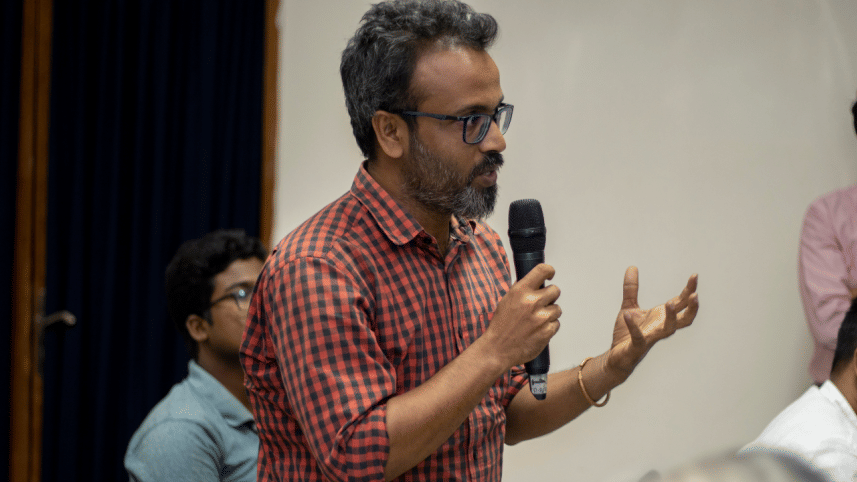
Sarah Anjum Bari: Aanchal, when I was reading your book Remnants of a Separation, I noticed that one can really visualise you taking the interviews, having the conversations whose memories of Partition make up your book. It must not have been easy to bring out these memories that might have been traumatic, or memories that took place such a long time ago. Could you give us some anecdotes?
Aanchal Malhotra: Thanks for that question. When you are conducting oral history interviews with the generation that had witnessed that kind of trauma and violence, and has lived with that memory for decades, you realise very quickly that the interview is not about you.
As I mentioned, I was quite young when I started doing this work. So, my first problem really was, how can I ever relate to someone talking about something I had never seen and may never see, I hope, in my lifetime. How to ask the questions? We don't really have the vocabulary of trauma that we have developed over these many decades, which seems strange for countries really born from trauma. What topics can I approach? Can I use the word Pakistan? Can I call Pakistan home? Can I call them refugees? Because that's really what their identity was in post 1947. They even lived in refugee camps for nearly a decade in Delhi.
And the second thing is, not everyone wants to speak, even though they may have committed to speak about the events. I think it's incredible to listen to people who have lived through such traumatic times holding on to those memories, talking about things other than violence. In these conversations there are innumerable mentions, not just of people who lived side by side, but also the desire, the longing to go back to one's soil, the friend that was left behind, the girlfriend that was left behind, the people that reunited in the camp, the objects carried, the food that was missed, the entire lifestyles that changed after partition.
This kind of cultural and social ethnography of people's lives were equally as important to archive. When you sit with them three, four, five hours at a time, aiding them to talk as much or as little they want to; when you're listening to these interviews and transcribing, translating, and you are listening to the very unique phrases they are using, that are born from a particular historical context of them having survived this trauma, the enormity of the trauma dawns at you. And I think it's the voices that don't leave, for me and the voices that remain most important for me.
How is memory inherited? How is it decreased? And how does it mean different things to different descendants in the three nations that were once part of the empire? It just gets you thinking that if a single date, a single year that impacts three nations, is not understood in one way and it provides its own multi-tributary kind of legacies—what does it mean for the future and how many more kinds of understanding will we have of a shared past?
*
ULAB Literary Salon is a first of its kind literary platform in Dhaka which seeks to bring together writers, readers and publishers from Bangladesh and elsewhere in South Asia in an informal, engaging setting. Once a month, each month, it offers Dhaka's literary minded a Saturday evening of book discussions and sale of books at a discount by Bookworm Bangladesh and ULAB Press, ULAB Lit Salon's partners. More updates are available on the ULAB Literary Salon Facebook and Instagram pages.
This interview has been edited for length and clarity.



 For all latest news, follow The Daily Star's Google News channel.
For all latest news, follow The Daily Star's Google News channel. 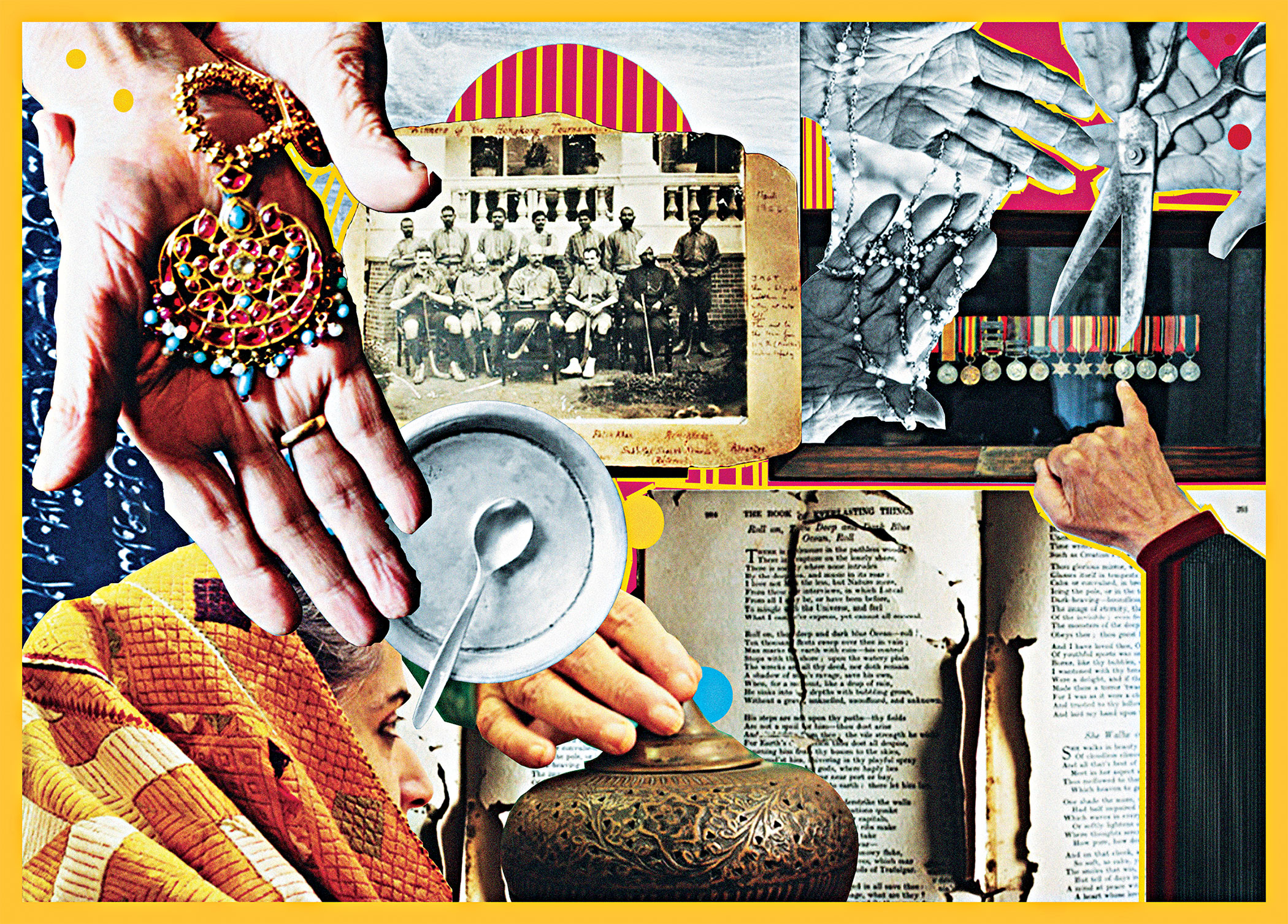
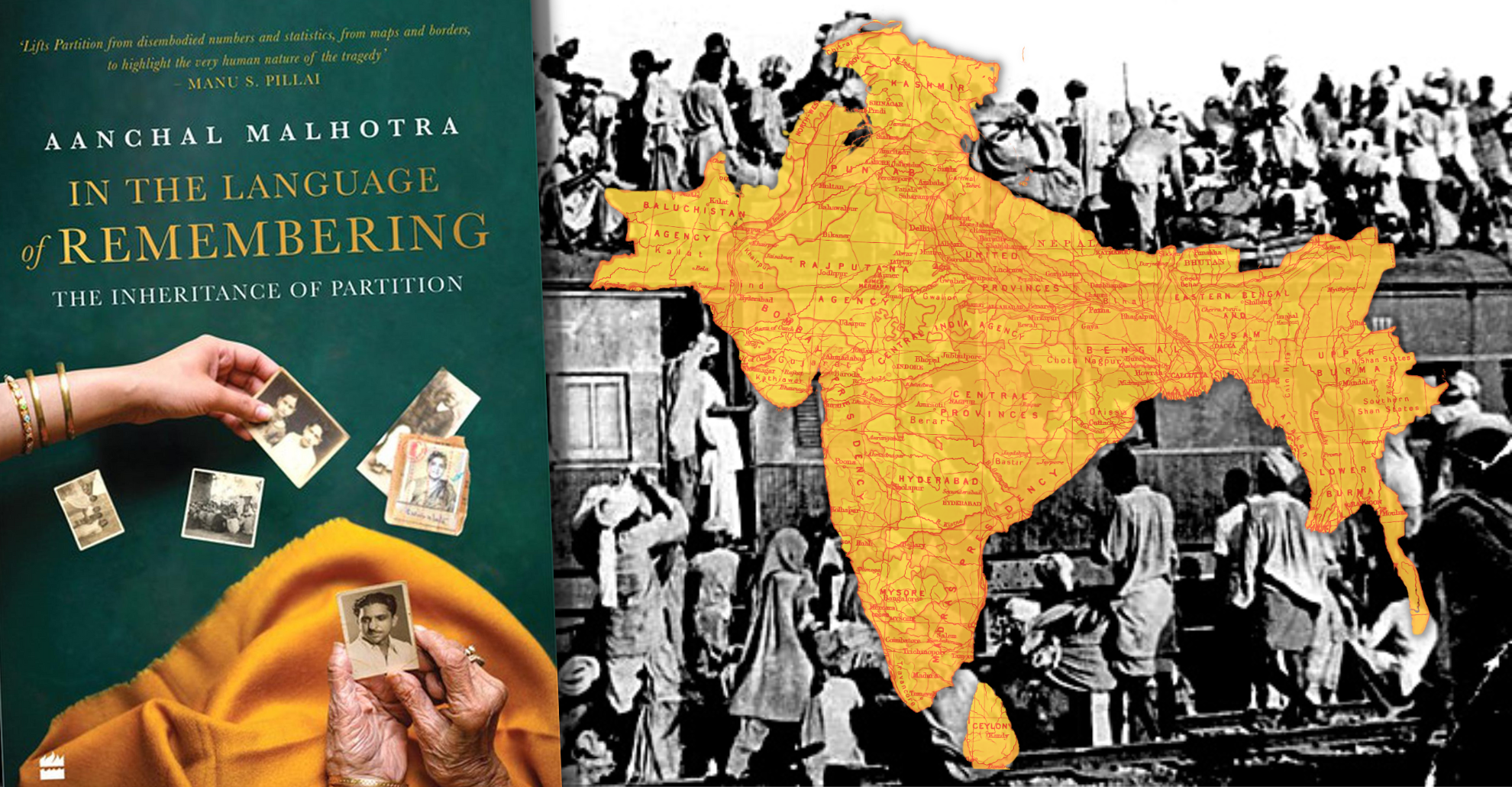
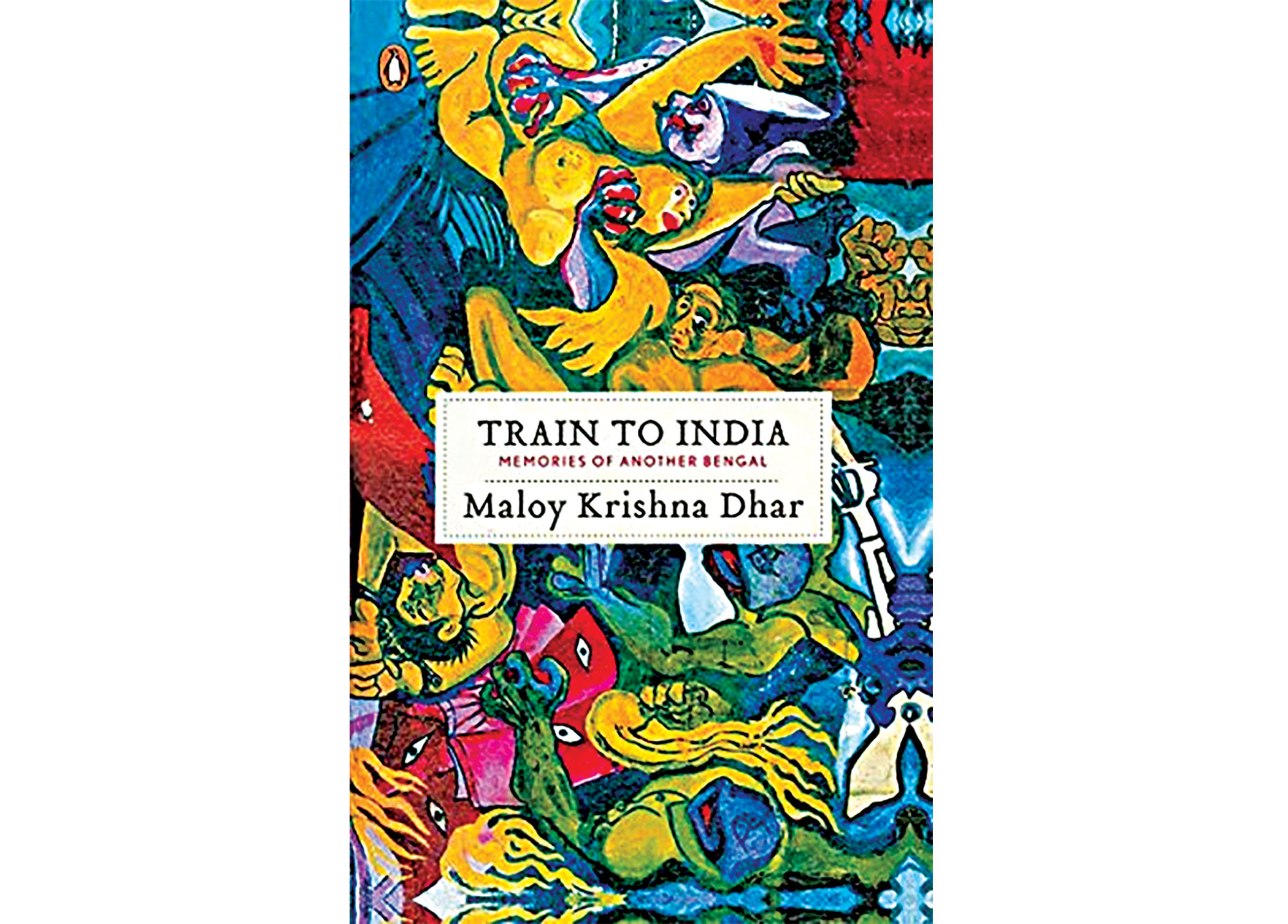
Comments